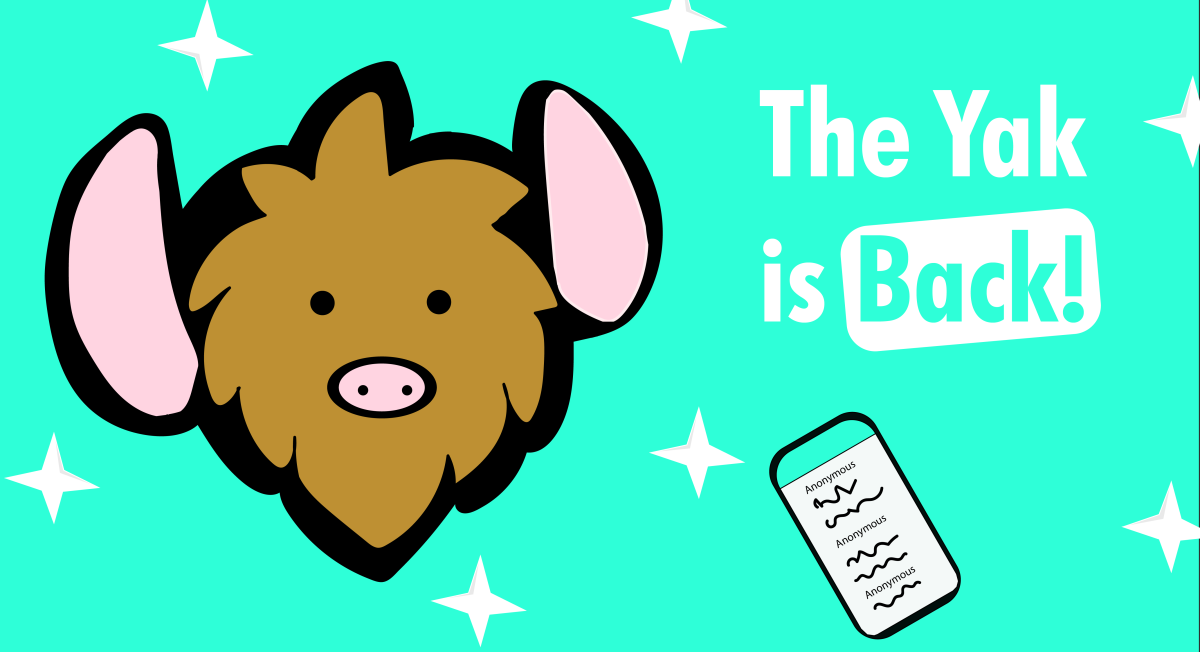Yik Yak, the anonymous location-based social media app, has made a return to campus after a four-year absence. Despite its immense popularity at NC State when it was first popular, the app was infamous for enabling cyberbullying and hate speech.
As Yik Yak begins to be used once again by NC State students, many campus officials are anticipating the issues it brought about years ago. Drew Sykes, director of the NC State Social Media Strategy Hub, outlined some of the challenges the University faced with Yik Yak previously.
“I think the big challenges were related to the downside of Yik Yak, and people occasionally using it to speak inappropriately about various things happening on campus,” Sykes said. “I was very happy when Yik Yak disappeared and so were other people in other institutions of higher ed.”
One of the most important facets that makes Yik Yak unique, and one of the largest draws to the platform, is its anonymity. As Yik Yak puts it, “The most popular celebrity on earth appears exactly the same as an average person.” Despite the benefits of an anonymous forum, Sykes explains that it can also be a breeding ground for hate speech.
“When used improperly, the anonymous angle can unfortunately invite people to feel empowered to say anything they want to say,” Sykes said. “And obviously, that can open up problematic conversations.”
Sykes goes on to say how Yik Yak’s five-mile radius, within which users can talk to each other, creates a unique situation as to how users on campus are able to communicate.
“Yik Yak is also unique because it has a different presence on college campuses than it does in shopping centers or other parks and things, because it is a lot more personal when it’s [in] a confined space with people that are consistently there,” Sykes said. “So, you think about a shopping center, or a mall, or a park, it’s always different people coming through. Here at NC State we have 35 to 36,000 students; it’s the same people in the same radius all the time. So that can open up different levels of personal feeling about what might be posted.”
Many students, however, see Yik Yak in a different light. Nikki Roane, a first-year studying food science, said she uses Yik Yak somewhat often. She praises the new Yik Yak policies — called the “community guardrails” — as she believes the app would foster hate speech if it weren’t for them.
“I probably check it once per day, just because there’s always so much stuff going on there,” Roane said. “I probably post every once in a while too. I appreciate their policy on slurs and stuff. … I think it helps prevent a lot of hate speech on the app because there would absolutely be hate speech if they didn’t do that.”
Maddie Smart, a first-year studying biological sciences, appreciates the overall comedy of the platform.
“It’s not really negative because you can’t tell who’s saying it,” Smart said. “So this person could be random, it doesn’t matter. It’s just funny.”
Sykes said that previously, the University did a lot of monitoring of Yik Yak to check for any threats or hate speech.
“Different departments around the University would monitor it from time to time, just to kind of keep an eye on things, to make sure nothing got out of hand in any way,” Sykes said. “Just kind of making sure that there wasn’t any sort of action that might be taken based on a post. So it was relatively passive, but we did pay attention.”
As the app increases in popularity once again, Sykes said the University plans to take a similar approach to monitoring the platform that they had used before.
“With Yik Yak, what we’ll plan to do and what we’re doing is monitoring it to see if we do receive any major threats of violence or cyberbullying,” Sykes said.
Yik Yak itself has touted its new “community guardrails,” which are meant to prevent some of the issues that plagued the platform during its initial phase of popularity. Sykes hopes that users are aware of one of the biggest changes to Yik Yak’s policy, which promises to report user information to the appropriate authorities if violence is threatened using the platform.
“We hope that that policy is something that folks are aware of, and that maybe even this story will help more people be aware of the fact that if violence is threatened via Yik Yak in any way, the platform will report that IP address to the appropriate parties,” Sykes said.
If any students are experiencing cyberbullying or hate speech through Yik Yak, or any other social media, Sykes recommends reporting the situation to the Bias Impact Response Team, which is an on campus resource which handles bias-related incidents which impact others on campus.
“There’s a form there that folks can fill out if they see anything that could be potentially hurtful or offensive, or if they feel like they need to elevate something to someone within the University,” Sykes said. “… And that’s a way to at least get things on record and make sure that there are eyes on situations.”
Sykes also recommends the Counseling Center as an important resource if any student needs a safe space to talk about any issues or hate they may run into, on social media or elsewhere.
“We have a wonderful Counseling Center here, so if there’s any level of searching for encouragement or a safe space to speak [about] mental health, or even physical health, I think our Counseling Center is wonderful,” Sykes said.
Students can submit a report to the Bias Impact Response Team here, and learn more about the NC State Counseling Center here.













